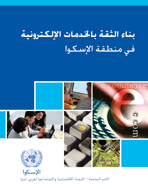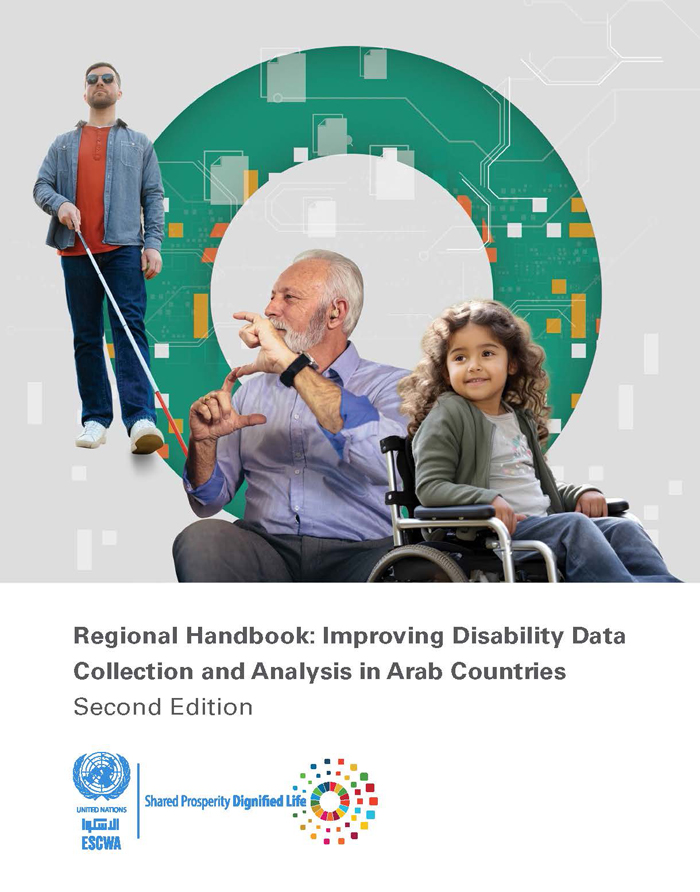
ESCWA Publication: E/ESCWA/ICTD/2009/4
Country: ESCWA Member States
Publication Type: Reports & studies
Cluster: Statistics, Information Society and Technology
Focus Area: Governance & enabling environment, Technology & innovation
Initiatives: Government electronic & mobile services
SDGs: Goal 9: Industry, Innovation and Infrastructure
Keywords: Arab countries, Communication technology, Data processing services, E-government, Government information, Information technology, Data protection, Information management
Building Trust in E-Services in the ESCWA Region
January 2009
The rapid pace of advancement in information and communications technology (ICT) and the increasing ICT application possibilities in the economic, social and cultural fields are accompanied, on the one hand, by exacerbating technological risks concocted by hackers abusing the global transnational nature of the digital environment, therefore undermining the confidence of users in ICT and its applications. On the other hand, the technical shortcomings in ICT infrastructure and the lack of legislative frameworks governing cyberspace and incriminating ICT abuse are contributing factors to the erosion of confidence in ICT. The inability to protect information networks and systems undermines their development and thus the development of electronic services designed to facilitate Government, administrative and trade transactions. It also causes the retraction of investments in ICT, thus depriving countries from golden opportunities to achieve economic growth and create new employments. This study provides a review of the problematic aspects of cyberspace, which affect the confidence of users in electronic services, and proposes appropriate solutions. It also prescribes the policies needed for building confidence in cyberspace and electronic services, with a view to advancing the information society and achieving socio-economic development.
Related content
Governance & enabling environment
, Technology & innovation
,
The rapid pace of advancement in information and communications technology (ICT) and the increasing ICT application possibilities in the economic, social and cultural fields are accompanied, on the one hand, by exacerbating technological risks concocted by hackers abusing the global transnational nature of the digital environment, therefore undermining the confidence of users in ICT and its applications. On the other hand, the technical shortcomings in ICT infrastructure and the lack of legislative frameworks governing cyberspace and incriminating ICT abuse are contributing factors to the erosion of confidence in ICT. The inability to protect information networks and systems undermines their development and thus the development of electronic services designed to facilitate Government, administrative and trade transactions. It also causes the retraction of investments in ICT, thus depriving countries from golden opportunities to achieve economic growth and create new employments. This study provides a review of the problematic aspects of cyberspace, which affect the confidence of users in electronic services, and proposes appropriate solutions. It also prescribes the policies needed for building confidence in cyberspace and electronic services, with a view to advancing the information society and achieving socio-economic development.


